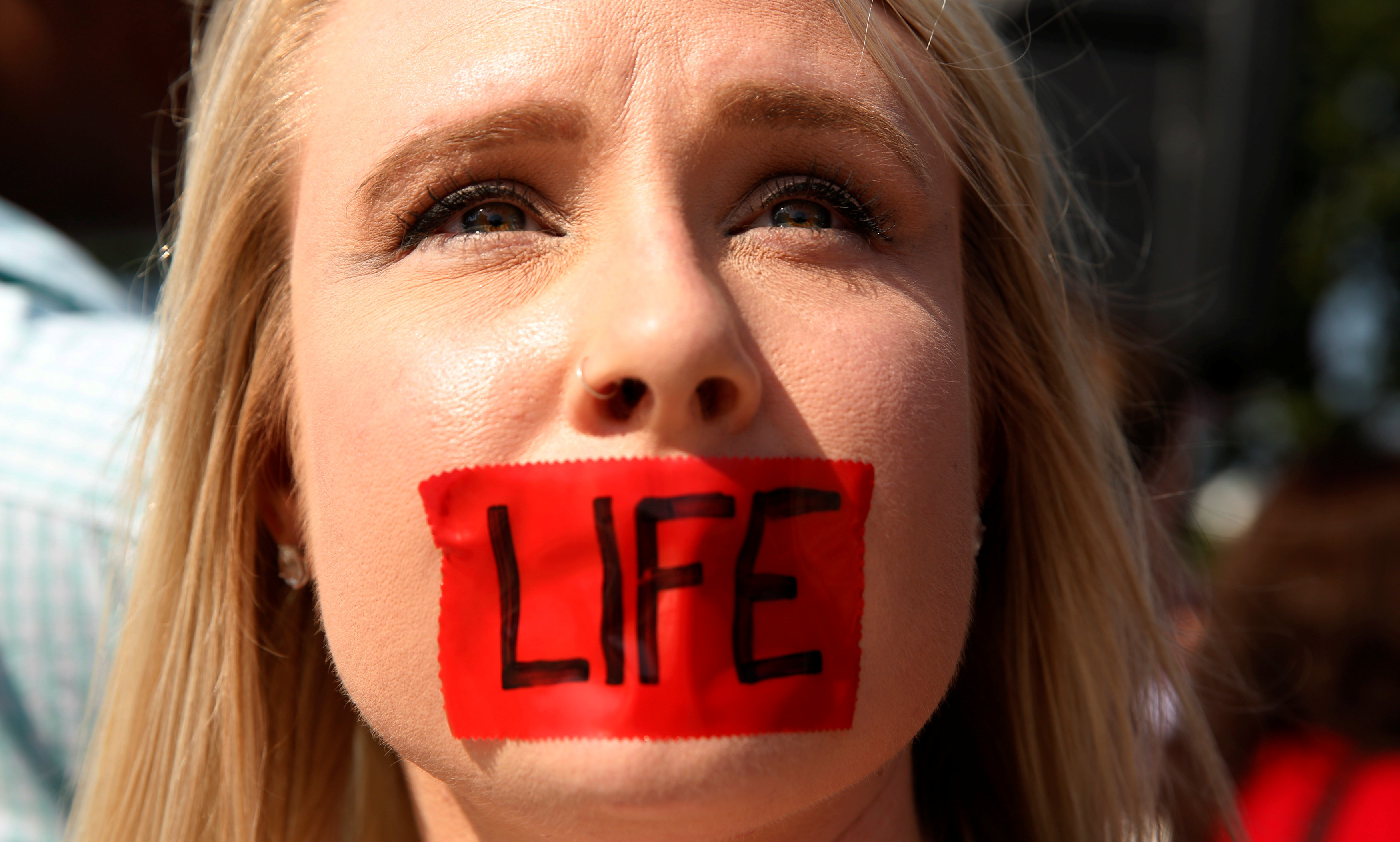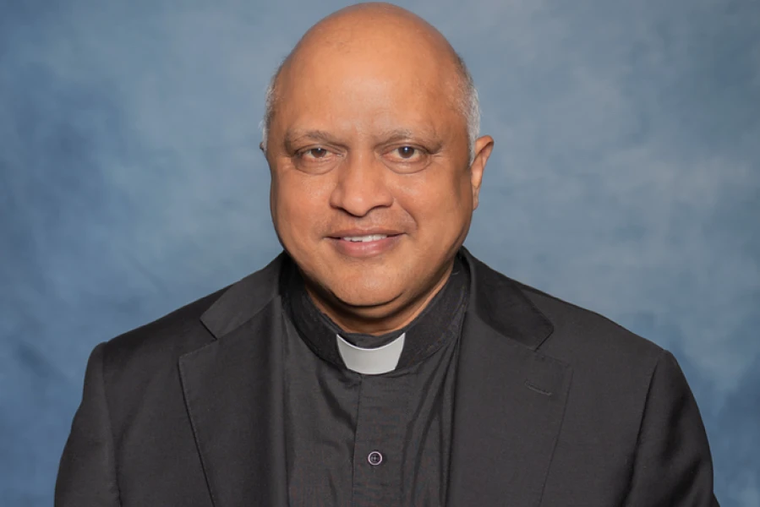The perverse ideology that silences good and celebrates evil
This week, the affiliation of a pro-life student society at the University of Manchester has been reported across the mainstream press. While some reports suggest the over 15,000 people petitioning on the matter are merely “voicing concerns”, a cursory glance of their campaign page shows that signees are demanding the club be forcibly dissolved. Despite The post The perverse ideology that silences good and celebrates evil appeared first on Catholic Herald.

This week, the affiliation of a pro-life student society at the University of Manchester has been reported across the mainstream press. While some reports suggest the over 15,000 people petitioning on the matter are merely “voicing concerns”, a cursory glance of their campaign page shows that signees are demanding the club be forcibly dissolved.
Despite this coordinated pressure, the University of Manchester Students’ Union (SU) has admitted-through proverbially gritted teeth- that it would be illegal to reject the society’s application to officially affiliate. Their statement included the chilling bureaucratic caveat that “if the actions of a society amount to hate speech or harassment, it would be challenged in line with the relevant procedures.”
The freshly founded group that has been subject to this scornful campaign, says it wishes to “promote the wellbeing, and dignity of every human life, from conception,” and is keen to confront a host of ethical quandaries, including “assisted suicide, the death penalty, deaths occurring through poverty and poor living standards, structural issues in critical infrastructure such as the NHS, and climate change”. Why should they be forbidden from doing so? That universities are a forum where serious debate on ethical issues should take place feels obvious, but we must accept the fact that this is no longer a useful point when millions of people view political disagreement as an intolerable threat.
I find it hard to believe that anyone who has heard or seen a graphic description of what abortion actually involves can seriously doubt why people may express reservations about it. Yet, they do, and ought not risk censorship for it. Their approach is not unusual in a global or historic context. Christianity, the faith that shapes all the assumptions of Western Civilisation, is a historical aberration in its attitude toward not just humans in general, but both women and babies. Ancient cultures, as do many that still exist, saw one’s dignity as tied to wealth, intellect, physical strength or ethnic affiliation, which often corresponded with power. . The biblical worldview is the first and only to promote the idea of all human life as fully and irrevocably equal in dignity and thus undeserving of undue violence, rape or murder. It is no coincidence that the Christianity’s earliest converts were largely slaves or women, judged to be subhuman by their contemporaries.
As Britain increasingly dismisses its founding moral framework as an oppressive irrelevance, the suffering of the unborn is now undoubtedly seen as an acceptable consequence of sexual liberation, and any dissenting voices are pressured to be silenced accordingly.
Simply because it appears that male students set up this particular group, the petitioners’ accusation that it is automatically anti-woman is crude and immature. If human rights issues were exclusively discussed by victims of them, countless campaigns, from Atlantic slavery abolition to animal welfare would still be getting off the ground. Moreover, women are more sceptical of abortion than men, with 70 per cent of women believing that the UK’s current 24-week time limit for abortion is too high, compared to 60 per cent of the general population.
While Manchester students complain about fears of “stigma” from pro-lifers, the reality is that abortion access has been expanded in recent years, with little political scrutiny, and despite safety concerns. In March 2020 the government scrapped requirements for women to attend at least one in-person consultation before being prescribed abortion pills, and soon MPs will consider an amendment which would decriminalise abortion up to birth is currently being considered by MPs. Abortion is already available in the UK on demand, up to 24 weeks and up to birth for any form of “disability”. Sex-selective abortion, which 91 per cent of British women want outlawed, also remains legal. We have also seen legislation passed which creates illogical censorship zones around abortion facilities, which has already prompted the arrest of a woman for silent prayer. It is those who are even perceived, even by their silence, to be unenthusiastic about abortion who are being legally stigmatised.
Britain’s now casual approach to what one pro-choice figure once admitted to me was a form of “socially acceptable murder” has unsurprisingly seen the number of abortions in the UK skyrocket. Terminations soared by 47 per cent in the first fortnight of 2023, double that of the same period in 2022. This came after 2021 saw the highest-ever abortion figures recorded in England and Wales, with one-quarter of pregnancies ending in abortion that year.
We must also acknowledge the uncomfortable fact that there are deep and unjust pressures for women to end pregnancies, with a survey by the “Pregnant Then Screwed” pressure group found that over half (55 per cent) of mothers who have had an abortion in the last 12 months agreed that the cost of childcare was the “primary reason” for having an abortion. A shocking seven per cent of British women report having been pressured into an abortion by their husband or partner.
The wider societal implications of cheap, legal and uncontroversial abortion means that women, especially when faced with external pressures, often find themselves with no moral or social incentive to continue a pregnancy, even if they deeply wish to. Nor is there an incentive to question the proliferation of abortion, given that doing so is likely to result in one being accused of ignorance, tyranny and misogyny – the latter of which may be diagnosed as “internalised” in the case of pro-life women and girls. Where in this debate is this supreme value of “choice” that progressive students claim to be so keen on?
The apparatus of Higher Education, as we have seen with its joyless “safe space” policies and accompanying violent protests, are obviously geared towards silencing unfashionable opinions. Still, Manchester’s SU were right to point out the contradictions between the Government’s new Free Speech (Higher Education) Act, which legally obliged them to tolerate the society, and various Equalities and “Hate Speech” laws on the books. For now, Manchester has been unable to repeat the scandal of the University of Nottingham , who in 2020 suspended a midwifery student from her course for attempting to found a pro-life society. Still, with a change of Government looming, and a Conservative Party that has not used its tenure to tackle this censorious legal landscape, pro-life students must fortify themselves for a less friendly future.
(CNS Photo)
![]()
The post The perverse ideology that silences good and celebrates evil appeared first on Catholic Herald.














